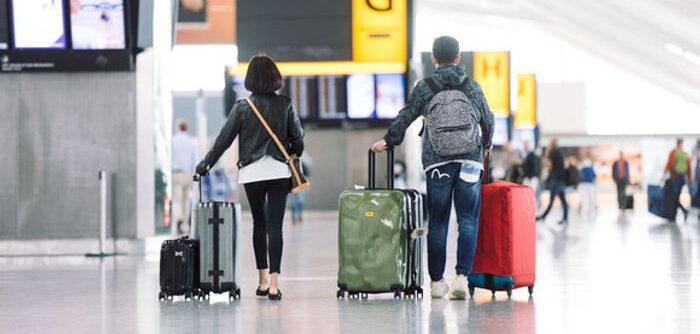London Heathrow Airport has reported a £321m (US$387.3m) adjusted pretax loss for the first half of the year amid flight cancellations, staffing issues and public airline criticism.
The airport has attributed these losses to the continuing effects of Covid-19, with higher passenger numbers and aeronautical charges offset by the costs of investments the airport made ahead of demand.
According to the airport, the number of people employed in ground handling fell sharply over the last two years because airlines cut costs during the Covid-19 pandemic. However, Neil Sorahan, chief financial officer of Ryanair, previously faulted European airports for not staffing up appropriately for the peak summer season. The airline representative told the BBC, “The airports had one job to do and that was to make sure they have sufficient handlers and security staff. They had the schedules months in advance. We managed to staff up for 73 additional aircraft well in advance and it’s incumbent on the airports to get their planning better next year.”
In response, Heathrow CEO John Holland-Kaye told the BBC this comment was “bizarre”, and said, “Airports don’t provide ground handling, that’s provided by the airlines themselves. So this is like accusing us of not having enough pilots.” In a Heathrow press statement, the CEO added, “We can’t ignore that Covid-19 has left the aviation sector deeply scarred, and the next few years will need investment to rebuild capacity, with a focus on safety, consumer service, resilience and efficiency. Airlines need to recruit and train more ground handlers.”
Heathrow estimates that ground handlers have no more than 70% of pre-pandemic resources, and that there has been no increase in numbers since January 2022. In the second half of June 2022, Heathrow’s departing passenger numbers regularly exceeded 100,000 a day. This resulted in an increase in delays to get planes on to stand, bags not traveling with passengers or being delivered very late to the baggage hall, low departure punctuality and some flights even being canceled after passengers had boarded. Consequently, the airport applied a cap on departing passenger numbers, which it has stated will remain in place until airlines increase their ground handler resource.
The airport has also seen the threat of industrial action by check-in staff employed by British Airways at Heathrow. Over 500 members of the UK union Unite voted for industrial action as a result of British Airways refusing to remedy the 10% pay cut imposed on the workforce during the Covid-19 pandemic. The GMB union also had members involved in the dispute. Following negotiations, the company made a new offer which members were balloted on and accepted. The offer, which will be paid in several stages, is worth 13% for the workers. In addition to the increase in pay rates, shift pay reductions that were forced on workers in 2020 will be reversed from October 2022.
Russ Ball, regional officer at Unite, said, “Special praise needs to be given to Unite’s reps, who were critical to ensuring this dispute was a success. Their hard work, dedication and commitment has been essential to ensuring that members had the confidence to support industrial action and that workers were fully informed throughout the dispute.”
Sharon Graham, general secretary of Unite, said, “This is a great result for our check-in members at British Airways. By standing together, they have forced a corporate giant like BA to do the right thing and restore levels of pay slashed in the pandemic. This is a further example of how Unite’s relentless focus on winning better jobs, pay and conditions for its members is delivering.”
The airport has also leveled its own accusation at the Civil Aviation Authority (CAA) for its H7 Final Proposal, saying that its cost-cutting focus will deliver “worse outcomes for passengers”. Heathrow has stated that the proposal “contains errors, such as the wrong opening gearing, and disallowing investment in service to vulnerable passengers that both passengers and the CAA itself tell us we should do”. The airport has said that the proposal doesn’t provide enough cash flow to enable investment in a new T2 baggage system or new security lanes to meet the Department for Transport’s (DFT) 2024 deadline. In response, the airport plans to submit a detailed assessment in early August.
Holland-Kaye stated, “Airports need to catch up on underinvestment during the Covid years – at Heathrow, that means replacing the T2 baggage system and new security lanes. Recent months have shown that passengers value easy, quick and reliable journeys, not penny-pinching, and the CAA should be encouraging the investment that will deliver for consumers.”
To read more updates about Heathrow, click here.

